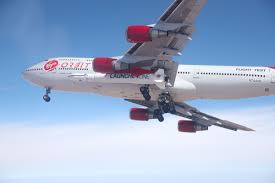
Breaking News
Importing Poverty into America: Devolving Our Nation into Stupid
 Grand Theft World Podcast 273 | Goys 'R U.S. with Guest Rob Dew
Grand Theft World Podcast 273 | Goys 'R U.S. with Guest Rob Dew
 Anchorage was the Receipt: Europe is Paying the Price… and Knows it.
Anchorage was the Receipt: Europe is Paying the Price… and Knows it.
 The Slow Epstein Earthquake: The Rupture Between the People and the Elites
The Slow Epstein Earthquake: The Rupture Between the People and the Elites
Top Tech News
 Drone-launching underwater drone hitches a ride on ship and sub hulls
Drone-launching underwater drone hitches a ride on ship and sub hulls
 Humanoid Robots Get "Brains" As Dual-Use Fears Mount
Humanoid Robots Get "Brains" As Dual-Use Fears Mount
 SpaceX Authorized to Increase High Speed Internet Download Speeds 5X Through 2026
SpaceX Authorized to Increase High Speed Internet Download Speeds 5X Through 2026
 Space AI is the Key to the Technological Singularity
Space AI is the Key to the Technological Singularity
 Velocitor X-1 eVTOL could be beating the traffic in just a year
Velocitor X-1 eVTOL could be beating the traffic in just a year
 Starlink smasher? China claims world's best high-powered microwave weapon
Starlink smasher? China claims world's best high-powered microwave weapon
 Wood scraps turn 'useless' desert sand into concrete
Wood scraps turn 'useless' desert sand into concrete
 Let's Do a Detailed Review of Zorin -- Is This Good for Ex-Windows Users?
Let's Do a Detailed Review of Zorin -- Is This Good for Ex-Windows Users?
 The World's First Sodium-Ion Battery EV Is A Winter Range Monster
The World's First Sodium-Ion Battery EV Is A Winter Range Monster
 China's CATL 5C Battery Breakthrough will Make Most Combustion Engine Vehicles OBSOLETE
China's CATL 5C Battery Breakthrough will Make Most Combustion Engine Vehicles OBSOLETE
Virgin Orbit's "flying launchpad" completes first captive carry flight

Virgin Orbit's Cosmic Girl took to the skies over Southern California on November 18, 2018 carrying a 70-ft-long (21-m) rocket for the first time. The specially modified 747-400 "flying launchpad" with the LauncherOne small-satellite booster under its port wing took off from Victorville, California on an 80-minute test flight designed to assess the take-off, landing, and low-speed handling and performance of the integrated aircraft and carbon-fiber two-stage rocket.
According to Virgin Orbit, Sunday's test flight by Sir Richard Branson's small satellite launch company was the first in a series leading up to an actual orbital launch early next year. Virgin Orbit CEO Dan Hart called it "a picture-perfect flight, and a major step forward in our quest to bring a new capability to small satellite launch."
The modified passenger aircraft and its rocket cargo are scheduled to carry out more tests over the coming months to gather more flight data on how well the mated systems work, as well as the robustness of the liquid-fueled rocket's composite design, avionics, and onboard computers. This will culminate in a dead-drop of the rocket without its engine firing to provide additional flight data during free fall. After its initial launch mission, Virgin Orbit plans to carry out several launches per year.



